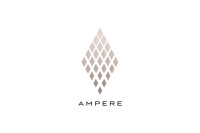Boulogne-Billancourt, July 1, 2024 – Ampere, the European pure-play intelligent EV manufacturer, today announced its ambitious battery plans, integrating LFP (Lithium Iron Phosphate) technology in addition to the NCM (Nickel Cobalt Manganese) batteries currently used by Groupe Renault.
This decision is an effective and cutting-edge response to market volatility and technological change.
Ampere is working with suppliers LG Energy Solutions and CATL to create an integrated value chain on the continent to ensure the best possible availability of LFP technology for vehicles manufactured in Europe. These two partners will supply Ampere with LFP batteries to be fitted to multiple models of the Renault and Alpine brands, meeting battery demand for this technology until 2030.
Ampere’s team, in collaboration with LG Energy Solution, is also leading the development of Cell-to-Pack technology, a cutting-edge innovation that is a world first for pouch batteries. This technology improves a vehicle’s driving range by integrating more cells and packing more on-board energy into a given space. Cell-to-Pack1 technology also helps reduce battery costs.
The integration of LFP and cell-to-pack technologies will enable Ampere to reduce battery costs for its vehicles by approximately 20% from the beginning of 2026.
Working with four leading battery partners, Ampere is accelerating in a rapidly changing environment, working with the best in each field to demonstrate the efficiency of a horizontal approach.
AESC Envision will install its NCM batteries at the Ampere ElectriCity hub in Douai, France; CATL will manufacture the LFP technology at its factory in Hungary, LGES will manufacture the NCM and LFP batteries at its factory in Poland; and Verkor will manufacture the NCM technology at its Gigafactory in Dunkirk, France.
The batteries will be assembled at Douai Manufacture’s battery assembly plant in Ampere ElectriCity (France).
Advances in LFP technology over the past few years and the development of its value chain in Europe have made it a real alternative to NCM. It consumes less energy than NCM, making it ideal for certain applications such as small and medium-sized cars. It also costs less, making it a key part of the economic equation for affordable electric vehicles and the democratization of electric vehicles in Europe.
The technology will be installed in vehicles in record time, with the first models expected to be equipped with LFP technology from early 2026.
“In a rapidly changing and competitive environment, our battery strategy proves the efficiency of Ampere’s open, horizontal approach with best-in-class partners to ensure smart capital allocation, flexibility and fast execution. The plan is aligned with Ampere’s roadmap to reduce costs by 40% by the next generation of vehicles,” said Josep Maria Recassens, Ampere’s Chief Operating Officer.
“Our collaboration with LG Energy Solutions has enabled us to localize the entire value chain around LFP technology in Europe and significantly increase our competitiveness, including from cell to pack. Battery innovation is underway and we are working with our partners from an early stage to tackle the major transformations ahead, especially with our Innovation Battery Cell Laboratory in Lardy, which will open in 2025,” said Philippe Brunet, SVP Powertrain and EV Engineering at Ampere.
1 – Cell-to-pack technology eliminates the battery module and integrates the cells directly into the case, allowing more cells to fit in a given space.

